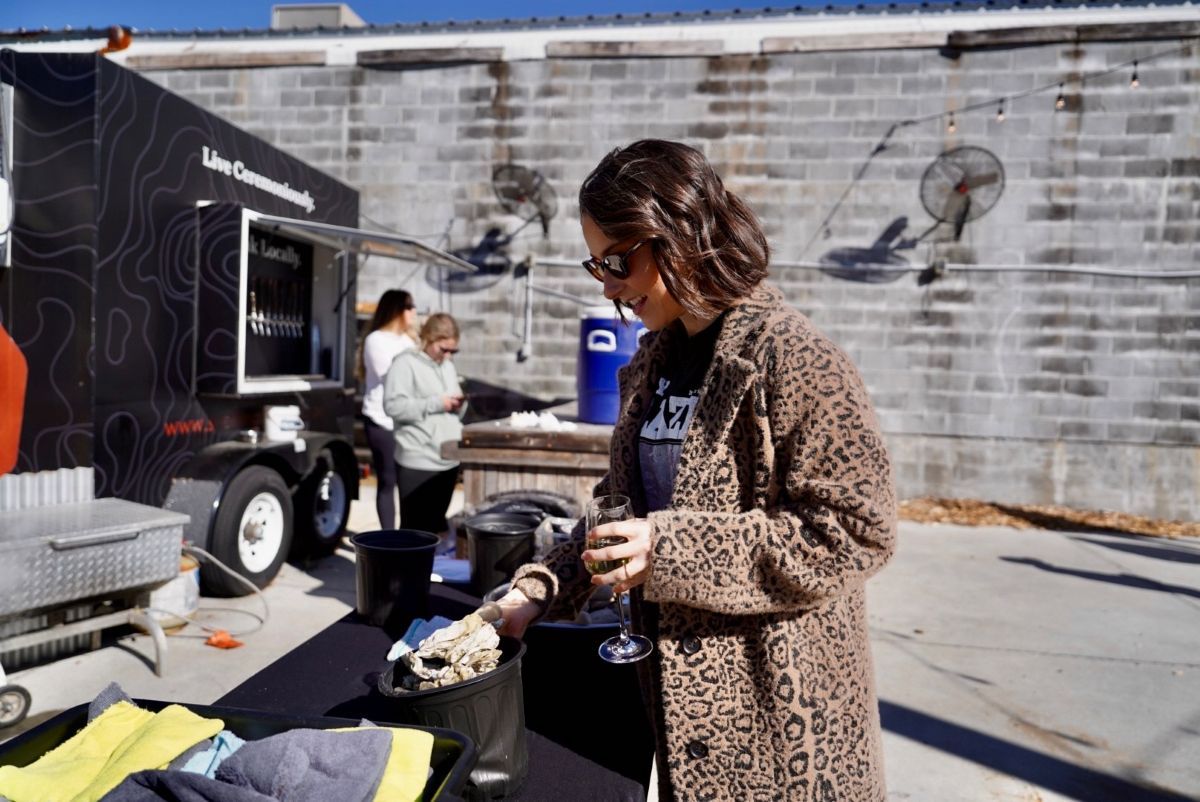SC has had fewer complaints than expected
By Skylar Laird
SCDailyGazette.com
COLUMBIA — When Emily Walsh got pregnant last year, she was afraid she would have to quit her job.
She typically spends her days driving from house to house, teaching life skills to people with disabilities. But the severe dizziness and fatigue that came with her pregnancy made driving difficult some days. She worried about what would happen if her persistent nausea made her sick in someone else’s home.
“I love my job, and I didn’t want to stop doing what I was doing,” the 27-year-old said.
As Walsh, who lives in the Columbia area, fretted about her symptoms, a friend sent her a video she’d seen on social media. Did you know, the video said, if you’re pregnant you’re legally entitled to ask your employer for accommodations?
A South Carolina law requiring workplaces to accommodate pregnant workers went into effect six years ago. Then, last June, a similar law took effect at the federal level.
Walsh hadn’t known. After talking to her human resources manager, she got permission to work from home on days when she didn’t feel well enough to leave the house, making virtual home visits using video calls.
Had Walsh’s employer not voluntarily met her needs, she could have forced the issue, filing a complaint with the agency that handles housing and workforce discrimination cases in the state.
Having that legal backing made the conversation with human resources easier, Walsh said.
“That gave me a lot more confidence,” Walsh said.
Complaints
About 70,000 women in South Carolina get pregnant each year. In the six years the state law has been in effect to protect those who are working while pregnant, the state Human Affairs Commission has received 84 complaints about employers not following the rules, according to commission attorney Jamie Smith. In many of those cases, the commission has found no evidence of discrimination, according to data provided to the S.C. Daily Gazette.
Because Walsh’s company was willing to work with her — initially for her first trimester, then for the rest of her pregnancy — she never had to file a complaint.
Her human resources manager encouraged her to use sick days and offered to help her apply for short-term disability leave if she needed it. But Walsh didn’t want to use those options, she said.
“I’m very grateful to have paid sick leave, but I also didn’t want to necessarily do that,” Walsh said. “I wanted to work.”
That was the point of the law, said Rep. Beth Bernstein, the primary sponsor on the bill six years ago, when it passed both House and Senate unanimously.
Along with protecting pregnant women from losing their jobs, Bernstein didn’t want women to postpone having children or for expecting mothers to quit their jobs because their workplaces wouldn’t give them the grace they needed, she said.
“Expanding your family, you shouldn’t be discouraged because you think it’s somehow going to affect your workplace performance,” said the Columbia Democrat and mother of two.
Some of the accommodations pregnant women can request under the law include longer or more frequent breaks, a chair to sit in if they spend much of the day standing, modified schedules or limits on how much they can lift.
Supporters of the law had expected to see more complaints. Kelli Parker, spokesperson for the Women’s Rights and Empowerment Network, which was part of the push to pass the law, believes the low numbers indicate the law has been a deterrent. Employers are giving their pregnant workers the accommodations they need before getting to the point of a legal complaint, she said.
“The fact that there have been fewer claims than we expected I think is a testament to the need for this, No. 1, and the success of the implementation,” Parker said.
Of the complaints in South Carolina, 23 remain under investigation, according to Human Affairs Commission data. Another five have yet to be formalized, Smith said.
But in 55% of the cases with a completed investigation, the Human Affairs Commission couldn’t find enough evidence to prove the employer discriminated against the employee. That doesn’t mean the discrimination didn’t happen but that the commission couldn’t find proof, Smith said. Most of the investigated complaints were found to have no cause.
Another 26% of the complaints were resolved privately between employee and employer, causing the employee to withdraw their complaint.
Six complaints ended for administrative reasons, such as being filed for a business with fewer than 15 employees or the complainant not cooperating. The Human Affairs Commission stepped in five times to help negotiate an agreement between the employee and employer.
Parker said opponents of this kind of legislation often assume companies will be required to make major concessions. For the most part, the accommodations the law requires are small but still vital to pregnant women.
“We’re just trying to make sure people are comfortable,” Parker said.
Federal law
The federal law that went into effect last June offers protections similar to those implemented at the state level. Both apply to businesses with 15 or more employees and require them to give pregnant workers “reasonable accommodations” unless it causes the employer “undue hardship.”
Where the two differ is on the issue of abortion.
The U.S. Equal Employment Opportunity Commission’s final rules on what employers can and can’t do under the federal law said employers must give accommodations for people seeking abortions as well. That might include time off work for an appointment or recovery.
South Carolina Attorney General Alan Wilson joined 18 other Republican attorneys general in suing the Biden administration over its interpretation of an otherwise bipartisan law, arguing that it forces states where abortion is illegal to offer those accommodations.
South Carolina bans abortions once a fetal heartbeat is detectable, around six weeks of pregnancy. Women seeking an abortion after that point must travel to another state that allows the procedure to take place later in pregnancy. That travel may require time off. The state’s top lawyer is among those arguing South Carolina companies should not be required to make allowances in those cases.
Getting out the word
Once Walsh started working from home part of the time, other coworkers who had gotten pregnant around the same time came to her and asked what they needed to do to get their own accommodations.
Her coworkers also hadn’t realized asking for accommodations was an option. Walsh pointed them to the resources she used, including a sample legal letter and guidance from attorneys with national nonprofit A Better Balance.
Walsh said she’d like to see the state law promoted more heavily. She suggested businesses be required to hang signs informing employees of their right to ask for accommodations, the same way companies must post information related health and safety worker protections.
The Human Affairs Commission offers guides to the laws on its website. Nonprofits such as WREN and A Better Balance promote it as well. People who come to WREN with questions often know a law exists but not what kinds of accommodations it specifies or how to ask for them, Parker said.
“We could do a better job, for sure,” Parker said.
What’s next
Walsh’s daughter is now six months old. While state law offers protections for pregnant workers, it offers less for new mothers, she said.
A 2020 state law called the Lactation Support Act requires businesses to give breastfeeding mothers extra breaks and a private location other than a toilet stall to pump breast milk. And employees of state agencies are guaranteed six weeks of paid maternity leave.
Walsh said she would like to see mothers’ options expanded.
When looking for a job, Walsh knew she would want to have children one day and specifically looked at maternity leave options. She considers herself lucky to have found a job with 12 weeks of paid maternity leave but knows many people don’t have the same benefit.
Bernstein said paid parental leave is something she has been focused on as well. She was the lead sponsor on a bill during the most recent session that would have increased the state’s maternity leave to 12 weeks, as well as taken paternity leave from two weeks to four. The legislation never received a hearing.
“I think we’ve got to continue to focus our energy on encouraging women in the workplace to have a family,” Bernstein said.
Results of complaints
Closed for administrative reasons: 6
No cause found: 34
Cause found and agreement negotiations entered: 5
Withdrew after an agreement was reached: 6
Under investigation: 23
Source: Human Affairs Commission
Skylar Laird covers the South Carolina Legislature and criminal justice issues. Originally from Missouri, she previously worked for The Post and Courier’s Columbia bureau.
S.C. Daily Gazette is part of States Newsroom, the nation’s largest state-focused nonprofit news organization.









